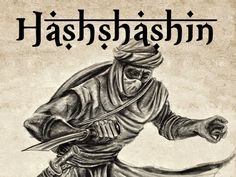There are some words or phrases in English that everybody both knows the meaning of and how they came about. However, while we may know the meaning, being correct about the true origin is quite a different matter.
Here are a few examples:
Posh – rich, well-off, upper class, exclusive, smart.
The story is that in the nineteenth century the more affluent travellers on the P&O ships sailed out to India from the UK on the port side and home on the starboard. Their tickets were therefore stamped P.O.S.H. However, etymologists think the more likely origin of the word is from the Romany for ‘half’ which became a slang term for ‘money.’
This didn’t stop P&O liking the story so much that it started to use the (false) posh derivation in its own publicity.
Bikini – two piece swim-wear for women.

This small garment was named, as we all know, after the two piece atoll of that name in the Pacific. Actually the Bikini Atoll is made up of over 30 small coral islands, not just two. However, in 1946 two atom bombs were tested in the area and the swimwear designer, in an extreme lapse of good taste, named his new creation after these because ‘of the explosive affect the suit would have on men.’ Later he felt obliged to insist he named it after the whole atoll after all.
Okay /OK – fine, yes, not bad.
OK is said to derive from a fad in nineteenth century America, for both abbreviating and misspelling common phrases – in this case ‘all correct.’ This might actually be true, though its popularity grew in the presidential election of 1840 as the nickname for the candidate, Martin Van Buren, was Old Kinderhook (OK – get it?). The candidate went on to be the eighth American president, and ‘okay’ is now perhaps the most universally understood term of assent / approval.
But it might just have come from the American-Indian word for ‘yes’ –‘okeh.’
Finally here’s a phrase / acronym that is also understood worldwide.
S.O.S. – HELP!

OK, we all know this means ‘Save Our Souls.’ Or, if not that – ‘Save Our Ships.’ Lots of us could tap out the Morse code for the phrase too. The original Morse code was CQD (seek you, danger), but in 1908 SOS was chosen because the code – three dots, three dashes, three dots – was easier to remember and transmit. So, in fact, SOS isn’t either a phrase or an acronym; it is simply three letters.
This blog is a version of the one first appearing in 2016
Links to my books and social media
ALL BOOKS FREE ON KINDLE UNLIMITED – At least one story always free.













